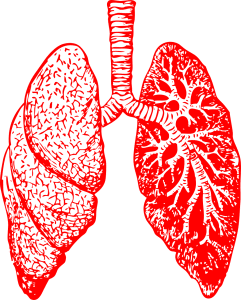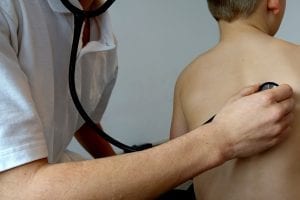People living with bronchiectasis, a chronic condition characterized by damaged airways, experience progressive lung damage and inflammation. This can lead to a multitude of consequences, including a reduction in quality-of-life. At the time of this article, the FDA has not approved any treatments for bronchiectasis. But that has the potential to change with brensocatib.
Brensocatib is an investigational small-molecule DPP1 inhibitor being developed by biopharmaceutical company Insmed Incorporated (“Insmed”). Normally, DPP1 activates neutrophil serine proteases (NSPs). In bronchiectasis, these NSPs are overactive, which causes inflammation. Insmed hopes that, by inhibiting DPP1, brensocatib could prevent or reduce pulmonary damage.
According to a recent news release from Insmed, the company has fully enrolled adults with bronchiectasis for the pivotal Phase 3 ASPEN clinical trial. Altogether, over 1,700 participants are taking part. This trial aims to determine brensocatib’s safety, efficacy, and tolerability for people living with non-cystic fibrosis (non-CF) bronchiectasis. During the trial, patients will be split into three cohorts. One cohort will receive 10mg brensocatib, another 25mg, and the final a placebo. Insmed hopes to share data in Q2 of 2024, including information on whether brensocatib reduced pulmonary exacerbations, or episodes of difficult or painful breathing.
The Basics of Bronchiectasis
An estimated 340,000-520,000 people nationwide are living with bronchiectasis. This condition is characterized by permanently damaged, widened, and thickened bronchial tubes. Because of this, the lungs cannot clear out bacteria and mucus. Depending on the severity, bronchiectasis may affect just one area of the lungs or multiple. About 33% of bronchiectasis cases result from cystic fibrosis. The remaining causes may result from autoimmune or inflammatory disorders, mycobacterial infections, primary ciliary dyskinesia, tumors, HIV or other immune-compromising conditions, organ transplants, or allergic fungal lung reactions.
Symptoms may take months or years to develop. These may include:
- A chronic cough that may produce blood or mucus
- Shortness of breath and/or difficulty breathing
- Wheezing
- Chest pain
- Night sweats
- Frequent respiratory infections
- Unintentional weight loss
- Foul-smelling mucus
- Clubbed nails
- Extreme fatigue
Antibiotics, pulmonary rehabilitation, oxygen therapy, and chest physiotherapy may all be used to help manage this condition.






